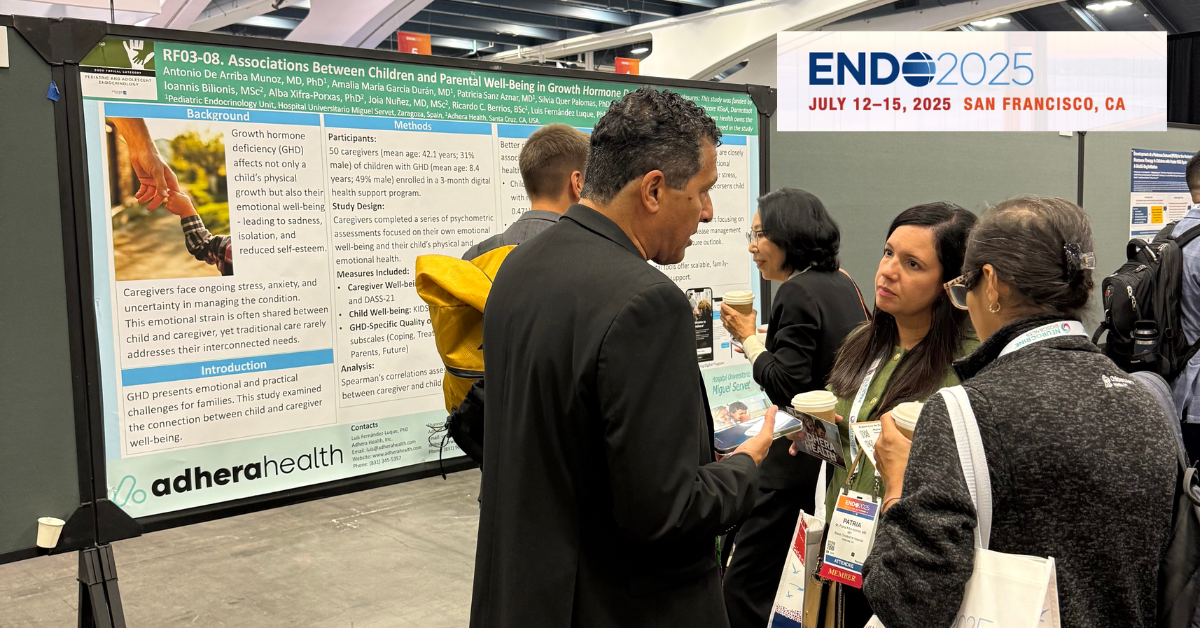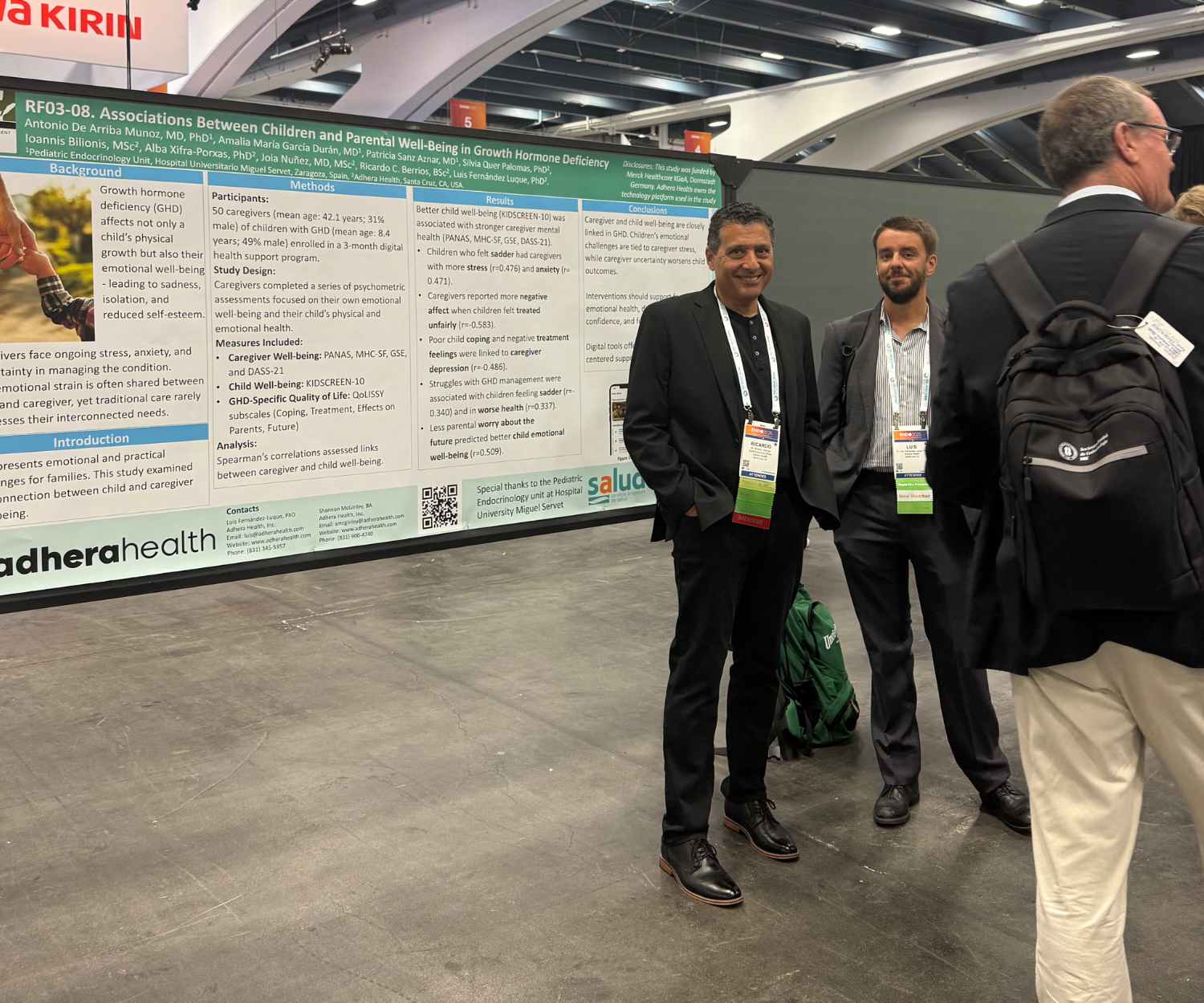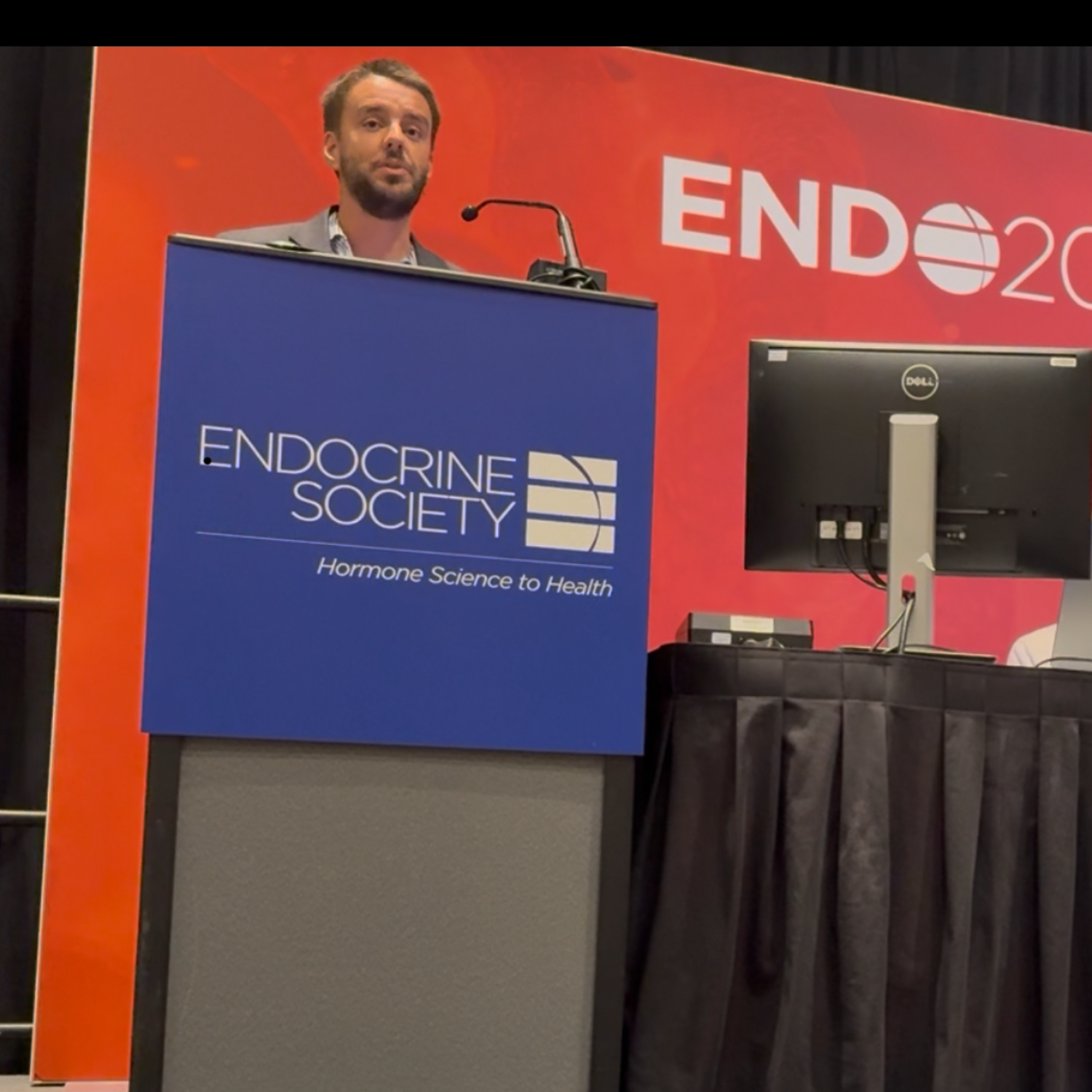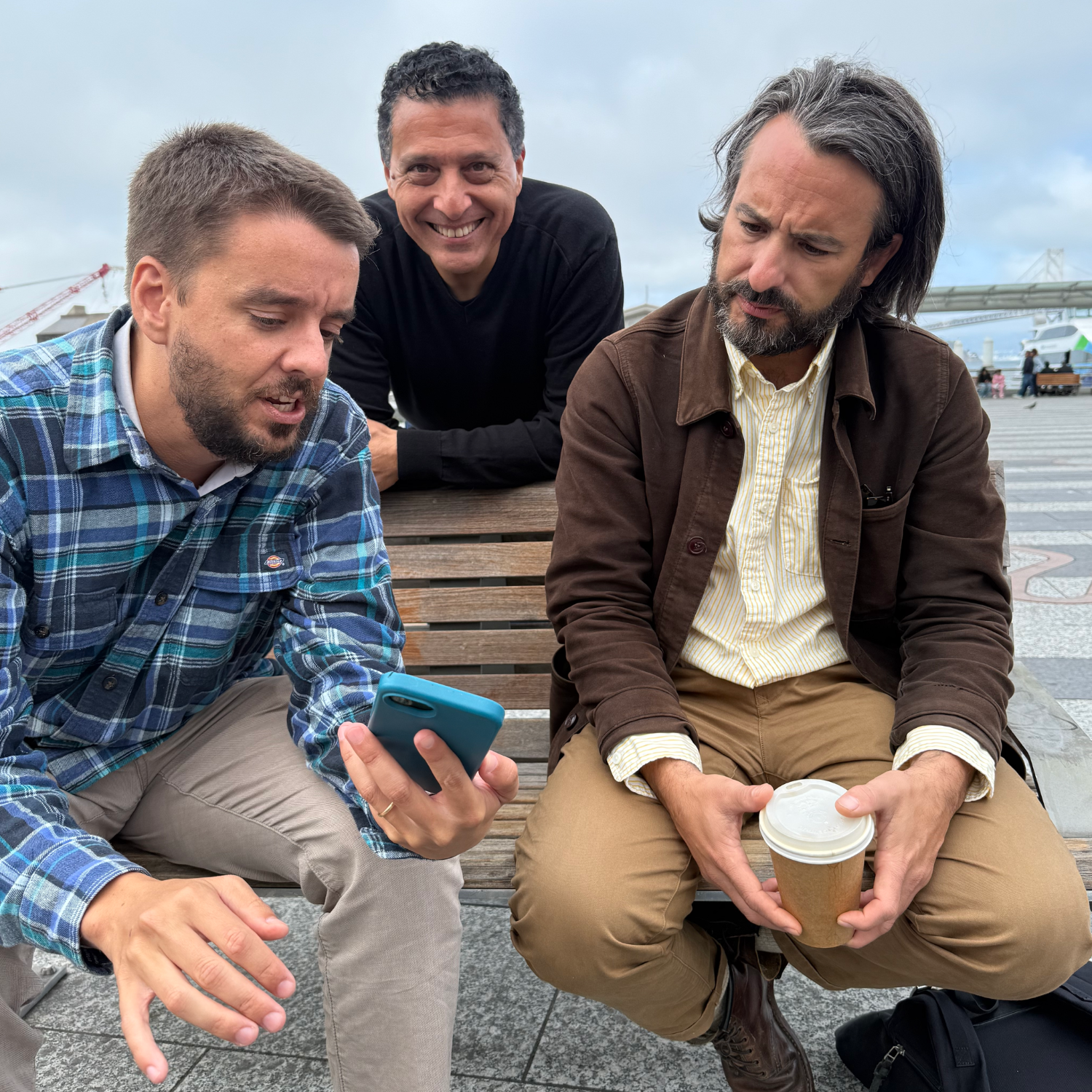Standing With California Families: What I’ve Learned From Parents Navigating Type 1 Diabetes
Managing a child’s type 1 diabetes brings more than medical challenges — it brings emotional, social, and financial strain for families across California. Through Adhera Health’s T1D beta program, I’ve heard directly from parents about their struggles and their hopes. One mother told me, “Letting out my voice gives me relief.” Another shared, “I felt love from people I didn’t even know.” These voices remind us why our AI + human digital companion must combine empathy, education, and community to truly support families.
In California, thousands of families live with the daily realities of pediatric type 1 diabetes (T1D). Nationally, more than 300,000 children and adolescents under 20 have T1D, with nearly 20,000 new cases diagnosed each year (source). For parents, the diagnosis brings not just medical complexity but also emotional and social challenges - from sleepless nights to stigma at school.
At Adhera Health, we are AI-native, building companions that combine intelligent digital agents with human coaching and community support. Our flagship, the Adhera Caring Digital Program (ACDP), delivers evidence-based, personalized support for families managing pediatric chronic conditions.
Recently, we launched our T1D beta program, and I had the privilege of interviewing parents participating in it. Their voices continue to guide how we design meaningful support.
What I’ve learned from these conversations:
Emotional support matters deeply. Parents often described overwhelm, grief, and fear after diagnosis. One mother told me, “Letting out my voice gives me relief.” Another said, “This came at the right time after a very dark moment.”
Education is power. Families praised step-by-step guidance on CGM use, carb counting, and school communication. Bite-sized lessons were described as “clear and easy” and “more than I expected.”
Community brings comfort. When caregivers connected with peers, the impact was profound. “I felt love from people I didn’t even know,” one parent shared. That sense of belonging is something no algorithm alone can provide - it’s the human layer that makes AI support real.
Families want child-inclusive tools. Parents of older children voiced a desire for features that help kids take more responsibility, building both confidence and independence.
These reflections align with what our peer-reviewed research in JMIR Pediatrics & Parenting has shown: family-centered digital interventions can reduce caregiver stress and improve adherence in pediatric chronic care:
Our beta shows that impact is not just theoretical - it’s happening in real homes, with real families.
As we deepen partnerships with California payors, children’s hospitals, and advocacy groups, our goal remains clear: support families with tools that combine the best of AI and human care, improve outcomes for children, and lower long-term healthcare costs.
I’m also excited to share that we are preparing to launch our beta program for families managing pediatric obesity, further expanding how we support families across conditions. And later this month, I’ll be attending the California Association of Health Plans Annual Conference in Desert Springs, CA, meeting with executives from California health plans, Medi-Cal, and others to discuss the results we’ve been seeing with families - and what’s next.
Adhera Health at ENDO 2025: Championing Family-Centered Innovation in Pediatric Chronic Care
At ENDO 2025, Adhera Health presented three groundbreaking studies on pediatric chronic conditions—highlighting how AI-powered digital companions can improve both child and caregiver outcomes in families managing growth hormone disorders, type 1 diabetes, and obesity. Here’s what we shared, who we partnered with, and why it matters.
Last week at ENDO 2025 in San Francisco, Adhera Health took the stage with three research presentations focused on family-centered approaches to pediatric chronic condition care. The team presented posters on Growth Hormone Deficiency (GHD), Type 1 Diabetes (T1D), and Pediatric Obesity - and delivered a Rapid Fire presentation during the Pediatric Growth Hormone session on Day 1.
Mental & Emotional Health in Growth Hormone Disorders
Ricardo C. Berrios, Adhera Health’s CEO and Luis Fernandez Luque, PhD, Adhera Health’s Chief Scientific Officer, presenting at ENDO 2025
Our study on GHD, presented in both poster and rapid fire formats, emphasized the interconnected emotional and physical challenges experienced by children and their caregivers. It highlighted how caregiver mental health is strongly associated with a child’s coping and treatment outcomes. These findings reinforce the need for holistic, family-centered interventions that address the full lived experience of GHD - not just the medical aspects. This study was conducted in partnership with the University of Miguel Servet’s Pediatric Endocrinology Department (led by Dr. Antonio de Arriba) and supported by Merck GmbH.
From over 2,700 abstracts presented at ENDO 2025, only 24 were selected for official Endocrine Society press releases - and our study was one of them. You can read the release here.
Our findings didn’t just make waves at ENDO — they also sparked coverage in leading science and health media outlets like News-Medical and Medical Xpress, helping to bring the conversation around family-centered pediatric care to a broader global audience.
Luis Fernandez Luque, PhD, Adhera Health’s Chief Scientific Officer, presenting at ENDO 2025
Type 1 Diabetes and Severe Glycemic Events
Our second presentation, titled "Associations Between Severe Events of Hypo- and Hyperglycemia and Family Well-being", explored how fluctuations in blood sugar levels - particularly at night - affect not just children with T1D, but also their caregivers’ emotional state and children’s academic performance. Caregiver education emerged as a key protective factor, reinforcing the value of empowering families with knowledge and emotional guidance. This study was conducted in partnership with the University of Miguel Servet’s Pediatric Endocrinology Department (led by Dr. Antonio de Arriba) and supported by Novo Nordisk.
Obesity in Underserved Families
Our third poster focused on the lived experiences of Latino families managing childhood obesity. Through 11 participatory workshops involving over 50 families, the study uncovered key challenges: stigma, cultural food practices, limited access to resources, and mental health gaps. Caregivers stressed the need for culturally competent, emotionally supportive tools - pointing to digital companions as a promising solution to close the care gap. This work was supported by an SBIR grant from the NIH in partnership with Jennifer Raymond, MD, MCR an Associate Professor in Pediatric Endocrinology at Children's Hospital Los Angeles and her research team.
Shannon McGinley, Adhera Health’s Director of Marketing and one of the researchers on the NIH-funded study
Collaborator Connections at ENDO
Beyond the research presentations, ENDO 2025 was an opportunity to deepen our partnerships. We met with critical Key Opinion Leaders including Dr. Brad Miller (Professor of Pediatrics, University of Minnesota) and Dr. William Martinez ((Associate Professor of Clinical Psychiatry and Behavioral Sciences, University of California, San Francisco) to discuss future directions for research in growth disorders and mental health in pediatric obesity. We also connected with Dr. Tina Hu, Clinical Director of Diabetes Transition of Care at UCSF, to explore the evolving needs of adolescents with diabetes as they age into adult care.
Ricardo C. Berrios, Luis Fernandez Luque and Dr. William Martinez, Associate Professor of Clinical Psychiatry, UCSF, discussing future partnerships
Looking Ahead
We’re proud to be advancing the science behind family-centered care in pediatrics. Whether it’s Growth Hormone Deficiency, Type 1 Diabetes, or Obesity, our work highlights the power of pairing digital innovation with human understanding - and bringing the whole family into the center of chronic care management.
View the Posters:
Adhera Health Research Spotlighted at ENDO 2025: Advancing AI-Driven Family-Centered Pediatric Care
Adhera Health’s latest research, featured at ENDO 2025, explores how AI-driven digital companions can support families managing pediatric chronic conditions like T1D, GHD, and obesity - putting science and empathy at the heart of care.
We’re thrilled to share that three of Adhera Health’s research studies have been accepted for presentation at ENDO 2025, the annual meeting of the Endocrine Society and one of the world’s leading forums for endocrine innovation. Taking place this July in San Francisco, the event will spotlight how our work is reshaping pediatric chronic care through clinically grounded, AI-powered solutions that support not just the child - but the entire family.
Groundbreaking Research, Family-First Impact
At Adhera Health, our mission is rooted in one fundamental belief: pediatric care must be family-centered to be truly effective. The studies selected for ENDO 2025 dive into the emotional, behavioral, and systemic realities of families navigating three complex conditions:
Growth Hormone Deficiency: A study revealing the deep interdependence between child and caregiver well-being.
Type 1 Diabetes (T1D): Research examining how AI can help identify patterns in hypo- and hyperglycemic events to better support families.
Childhood Obesity in Underserved Populations: A participatory initiative engaging Latino families to uncover cultural and systemic barriers, shaping more inclusive digital support tools.
“These insights are more than scientific findings - they’re the foundation of how we build technology that actually works for families,” said Ricardo C. Berrios, Co-Founder & CEO of Adhera Health. “We’re honored to share this work with the broader endocrine community at ENDO 2025.”
Powering the Future with Adhera AI Health Agents
These studies directly inform the development of the Adhera® AI Health Platform and our proprietary Adhera Health Agents - goal-oriented, autonomous AI companions built on Small Language Models (SLMs) and fueled by biopsychosocial family data. These agents are designed to support the entire care journey, offering timely, empathetic, and personalized guidance to families navigating chronic conditions.
“Our collaboration with Adhera Health shows how digital innovation must be both scientifically sound and human-centered,” said Dr. Antonio de Arriba Muñoz, Pediatric Endocrinologist at Hospital Universitario Miguel Servet.
Scaling Empathy and Science
As we scale nationally, these findings reinforce our belief that the next generation of healthcare tools must go beyond automation. They must understand, support, and connect—in ways that are equitable, emotionally intelligent, and clinically aligned.
“This is AI that doesn’t just think—it understands,” Berrios added. “It’s not just advanced, it’s deeply empathetic.”
To learn more about our work at Adhera Health and how we’re transforming pediatric chronic care, get in touch with us.
This blog article is based on the press release - https://www.einpresswire.com/article/819470694/adhera-health-strengthens-ai-driven-pediatric-platform-with-research-featured-at-endo-2025
Meet Connie Dovel: A Health & Wellness Coach Who Gets It
“It’s not just about what to eat or how to dose. It’s about listening - really listening - and working together to find what fits.”
Connie Dovel, Health and Wellness Coach for the Adhera Caring Digital Program, knows firsthand what families go through when a child is diagnosed with Type 1 diabetes. As a parent of a T1D child herself, she brings deep empathy, real-life experience, and evidence-based support to every coaching interaction. In this blog, Connie shares how she helps families feel more confident, supported, and seen - one day at a time.
At Adhera Health, we believe that caring for a child with Type 1 diabetes takes more than clinical appointments - it takes everyday courage, emotional support, and a sense of being truly understood. That’s exactly what families find in Connie Dovel, one of the compassionate Health and Wellness Coaches behind the Adhera Caring Digital Program.
Connie’s role goes far beyond advice - it’s about connection, empathy, and empowerment. Here’s a closer look at what fuels her work and how she supports families navigating pediatric Type 1 diabetes.
A Lifelong Passion for Health - and a Personal Connection to T1D
Connie’s career in health and wellness spans personal training, nutrition counseling, and health promotion. With a Bachelor’s in Exercise Science, a Master’s in Health Promotion Management, and certifications in both personal training and health coaching, she brings deep knowledge to every coaching session.
But what makes her truly unique is that she’s walked this road herself:
“My oldest child was diagnosed with Type 1 diabetes at 11. I can empathize with and guide families because I’ve faced the same challenges they’re facing every single day.”
Coaching That’s Personal, Not One-Size-Fits-All
Through the Adhera app, Connie supports families with:
One-on-one chat support
Scheduled video sessions
Each conversation is tailored to a family’s unique concerns. Whether it’s navigating sports safely, managing picky eating, or adjusting insulin around busy schedules, Connie adapts to meet them where they are.
“Every interaction is different. There’s no script. Just a real conversation based on what that family needs right now.”
A Moment That Meant Everything
Connie recalls supporting a teen girl with T1D who was completely burned out and disengaged from her care.
“She had given up. Her parents were overwhelmed. We took small steps, little by little. Months later, she messaged me:
‘Thank you for believing in me when I didn’t believe in myself.’
That’s why I do this.”
Tools That Help Families Feel in Control
Connie often begins with goal setting - short-term, long-term, and everything in between. From mindfulness exercises to daily check-ins, each strategy is customized. And thanks to the app’s chat function, support fits into real life, not just a calendar.
“Families are busy. The digital connection means we don’t need to wait for a scheduled session. We can talk when it matters most.”
Inclusive, Accessible Support for Every Family
Connie works with families from all backgrounds. Her approach is grounded in respect, curiosity, and flexibility, with sensitivity to cultural, social, and emotional differences.
“It’s not just about what to eat or how to dose. It’s about listening - really listening - and working together to find what fits.”
Looking Ahead with Adhera Health
As someone who once wished for this kind of support herself, Connie is energized by where Adhera is headed:
“This concept is revolutionary. I wish something like this existed when my child was diagnosed. I’m honored to be part of it.”
Her advice to every caregiver?
“Take it one day at a time. Don’t be afraid to accept help. And remember—every small win matters.”
Learn More About the Adhera Caring Digital Program
Discover how Adhera Health supports families managing pediatric chronic conditions with empathy, evidence, and everyday tools that work.









